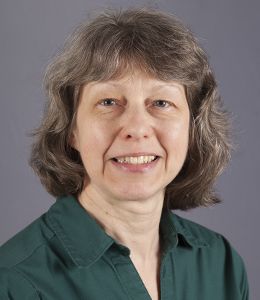
Irina V. Knyazeva, PhD
- Adjunct Faculty of Chemistry
- Chemistry Laboratory Coordinator and Stockroom Manager
Affiliated Programs
Education
- PhD, Organic Chemistry (1987)
Moscow State University (Moscow, Russia) - BS Chemistry (1983)
Moscow State University (Moscow, Russia)
About Me
Analytical skills, practical knowledge, and habits of safe productive lab work acquired in the college by rookie chemistry students are priceless. They lay the foundation of thoughtful creative work for future professionals. The sum of knowledge is ever-changing. This is the principle I was taught at Moscow State University. Build a solid fundamental knowledge, but be ready for lifelong learning. Be constantly growing; reinforce your subject skills and pedagogical skills.
Teaching is a privilege and a responsibility. One can reach the student population only by staying at the cutting edge of the subject knowledge and by demonstrating how it helps to derive educated opinions about contemporary life situations. Encourage students to explore their individual potential. Create an atmosphere in class where students would feel uncomfortable to come unprepared and where they would be eager to share their knowledge and opinions.
In the busy lecture schedule, make a time for free discussion. If the class didn't have any questions, blame yourself for such a failure. Preparing students for their careers requires awareness of employers' needs. Staying in touch with the area employers can be of great help to determine the topics for teaching and especially lab skills.
Define, measure, analyze, improve, control. These five words represent a corner stone of the Six Sigma approach to quantification of any process. I believe they are highly applicable to the college education. It is up to the teacher to determine the areas for improvement, vast or incremental (remember how we can eat an elephant: bite by bite). But the goal of improvement is always a better learning outcome for the students.
